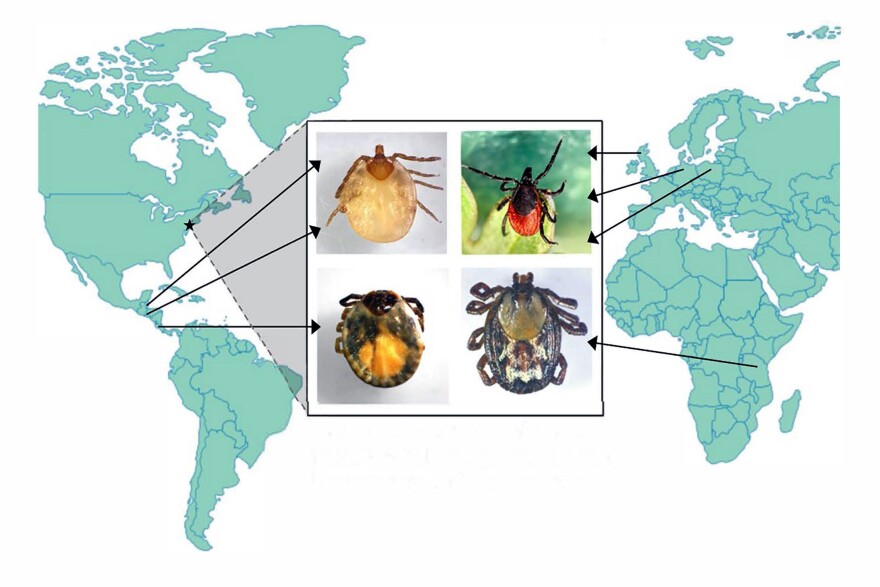Although Connecticut residents are accustomed to checking for ticks at home, authorities are cautioning tourists visiting other countries to also be on the lookout for the pests abroad.
According to the Connecticut Agricultural Experiment Station (CAES), nonnative ticks from Guatemala, Costa Rica, Belize, Tanzania, Germany, Poland, and Scotland have been found since 2019. These ticks most likely hitchhike on tourists from those nations.
The CAES Tick Testing Laboratory is run by public health entomologist and research scientist Dr. Goudarz Molaei. According to him, there are two reasons why passengers must be diligent.
“There is a chance that we might encounter ticks and get tick-borne diseases whether we travel to Africa, Asia, Europe, or anywhere else,” Molaei told Connecticut Public over the phone. There are several tick-borne illnesses in the world. A few of them are comparable to those seen in the United States. Others aren’t.
The introduction of new tick species to Connecticut and New England may cause problems for the ecology and tick-borne disease rates in addition to the risk to individuals.
Molaei claimed that in addition to being inundated, our area is already afflicted by numerous tick species and tick-borne illnesses. To be honest, we just cannot accommodate more tick species in our area.
One potentially hazardous tick that has spread throughout the United States, including Connecticut, is the invasive longhorned tick, according to Molaei. According to Molaei, this specific population has spread throughout Fairfield and New Haven [counties] in less than ten years since it was first introduced to the United States.
Climate change has made it easier for nonnative ticks from warmer, even tropical, regions to live and thrive in New England, according to Molaei.
When returning from a trip abroad, Molaei advises people to do the same kind of tick checks they would at home. Travelers who find connected ticks should visit their primary care physician and send the tick to the CAESTick Testing Laboratory for analysis, he advises.
“I don’t want the public to worry needlessly,” Molaei stated. By raising awareness, I hope to help people understand the importance of protecting themselves when traveling overseas.






